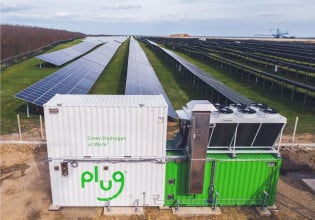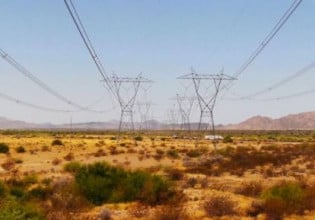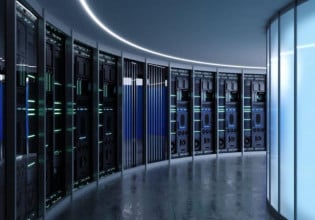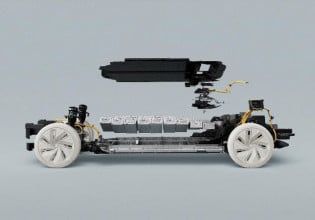Largest US Solid-State Battery Facility To Address Scalability Challenges
Factorial Energy’s Massachusetts facility will be the largest solid-state battery plant in the U.S. This article examines solid-state batteries, what makes them so promising, and the implications of Factorial's new plant.
With the rapidly expanding electric vehicle (EV) market, the demand for advanced and efficient batteries is soaring. To this end, solid-state battery (SSB) technology has become an extremely promising path forward for the industry.
Solid-state batteries can be used in EVs. Image used courtesy of Adobe Stock
Now, as the technology matures and becomes truly commercializable, many are investing in manufacturing. Recently, the solid-state battery developer Factorial Energy commenced operations at its state-of-the-art facility in Massachusetts.
Solid-State Manufacturing Challenges
Solid-state battery manufacturing presents a complex set of challenges beyond the typical issues encountered in traditional lithium-ion battery production.
One of the most pressing concerns is the scalability of the technology. Solid-state batteries have shown promise in laboratory settings, but translating these small-scale successes into mass-produced, commercially viable products is a formidable task. The materials used in solid-state batteries, such as solid electrolytes, are often more expensive and less readily available than their liquid counterparts, adding to the cost and complexity of scaling up production.
Solid-state vs. lithium-ion battery. Image used courtesy of Murata
Material compatibility is another significant hurdle. Solid-state batteries require a solid electrolyte compatible with the anode and the cathode materials. Any mismatch can lead to mechanical stresses, causing the layers to separate or crack, compromising the integrity and safety of the battery. This necessitates rigorous quality control measures and advanced manufacturing techniques to ensure all components are perfectly aligned and integrated.
Finally, unlike lithium-ion batteries, solid-state batteries don’t benefit from a vast economy of scale. Where the existing manufacturing infrastructure is largely tailored for liquid electrolyte-based lithium-ion batteries, transitioning to solid-state technology means either retrofitting these facilities, which is costly and time-consuming, or building new manufacturing lines from scratch.
Factorial’s SSB Plant
Now, Factorial Energy hopes to overcome some of these challenges with a new manufacturing facility in Massachusetts.
The plant, representing a $50 million investment, is strategically located near Factorial's existing R&D facility, enabling seamless collaboration between research and production teams. This co-location is crucial for addressing material compatibility and interface engineering challenges, as it allows for rapid iterations and testing of new designs and formulations.
Factorial Energy’s solid-state battery. Image used courtesy of Factorial Energy
One of the most significant aspects of this facility is its sheer scale. With a footprint that can accommodate up to a 200 MWh assembly line, it is set to become the largest solid-state battery assembly line in the United States. This addresses the scalability issue by providing the infrastructure needed for high-volume production. The scale of the plant also has the potential to drive down the unit cost of solid-state batteries, making them more financially viable for automotive applications.
Factorial's decision to make its Factorial Electrolyte System Technology (FEST) compatible with existing lithium-ion manufacturing equipment is another strategic move. By doing so, the company has significantly reduced the barriers to entry for automakers looking to transition to solid-state technology. This compatibility allows Factorial to leverage the existing manufacturing ecosystem, avoiding the high costs and time delays associated with building new production lines from scratch.
Building Out Solid-State Infrastructure
The demand for solid-state batteries significantly increases in concert with the growth of the electric vehicle market. The successful operation of Factorial's plant could serve as a blueprint for other companies in the sector, accelerating the transition to more efficient and reliable battery technologies. In a market increasingly demanding better performance and greater sustainability, Factorial Energy's efforts could be a catalyst for transformative change.









